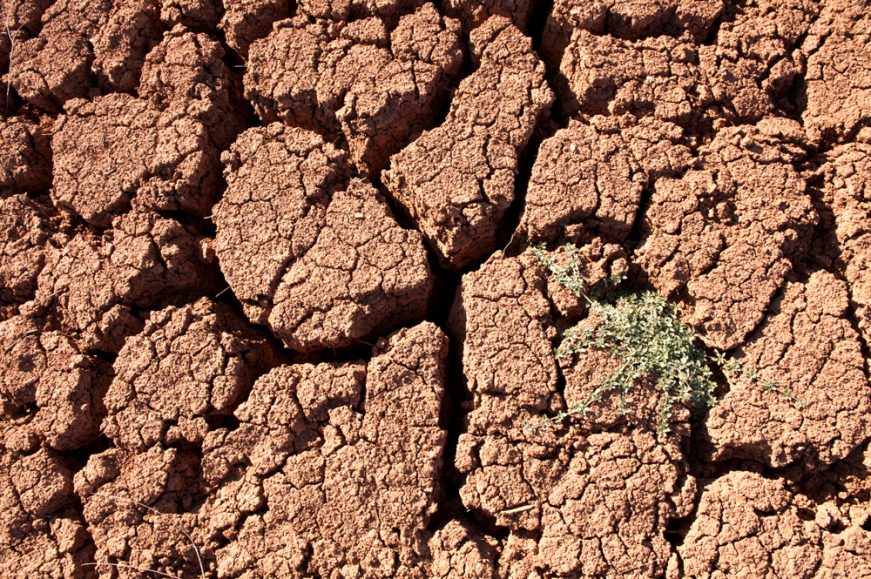Weird weather
Global warming helped trigger heat waves and droughts last year

Texas soil cracked by a prolonged drought. Scientists are beginning to link such extreme weather events to global warming.
©Ann Worthy/iStockphoto
By Roberta Kwok
People living in Texas experienced a miserably hot summer in 2011. In fact, it was the hottest the state had ever recorded. Earlier that spring, much of East Africa was so dry that farmers had trouble growing their crops. With little to eat, many people went hungry.
Scientists have now concluded that these extreme weather episodes, half a world apart, were among several known events caused at least partly by global warming. The researchers’ findings appear in a new report. It was published by the American Meteorological Society on July 10.
Some human activities, like driving cars and operating factories, spew carbon dioxide and other pollutant gases into the atmosphere. These gases slowly warm the planet — like a low-grade fever — through a process known as the “greenhouse effect.” The new research suggests that this warming trend and the way it is changing Earth’s climate is helping to trigger extreme weather.
It might seem obvious that global warming would contribute to hot, dry weather. But scientists cannot assume the two are linked.
Climate change is a slow process that happens over decades or centuries. Weather refers to the temperature, the amount of rain and other conditions that occur at a particular time and place. Even without climate warming, weather can vary dramatically from year to year in the same place — like your home town. That normal variability makes it difficult for scientists to figure out whether global warming is responsible for making any particular weather event more extreme.
But scientists can calculate whether climate change made an extreme weather event more likely.
David Rupp is a climate researcher at Oregon State University in Corvallis. He and his colleagues made such a calculation to better understand the 2011 heat wave in Texas. They knew that the hot, dry weather was probably caused partly by an event called La Niña. Each La Niña, which can last several years, marks a time when the eastern and central Pacific Ocean near the equator gets colder. The cold water, along with stronger winds blowing across the ocean from east to west, shifts the location of big clusters of thunderstorms in the tropics. The change in the storms’ location affects air flow patterns in other parts of the world and tends to make places like Texas drier.
But La Niña was not the only reason for the drought. The scientists compared the likelihood of extreme heat waves in Texas in recent years to those in other La Niña periods in the 1960s. Because of global warming, the chance that a La Niña would bring Texas unseasonably hot weather is now 20 times higher than 50 years ago, Rupp’s team estimates.
La Niña also helped trigger the drought in Africa. At the same time, however, global warming has heated the Indian and western Pacific Oceans. This change in ocean temperature altered the weather, making the drought worse, concludes Chris Funk, a scientist at the U.S. Geological Survey in Santa Barbara,Calif.
Sometimes, extreme weather happens for reasons other than climate change. Last year,Thailand got a lot of rain and suffered worse flooding than at any time in recorded history. But the problem wasn’t global warming, researchers concluded in the new report. Other factors, such as construction of buildings on farmland or on low-lying areas near rivers, made the water drain more slowly. Here, community decisions on where to build and how to control river flow exaggerated the effect of heavy rains.
Power Words
climate The temperature, dryness and other weather conditions in an area over a long period of time.
weather The atmospheric conditions at a specific time and place, such as temperature, amount of rain and cloudiness.
drought A long period of very dry weather.
La Niña A climate event during which the eastern and central Pacific Ocean near the equator becomes cooler.







